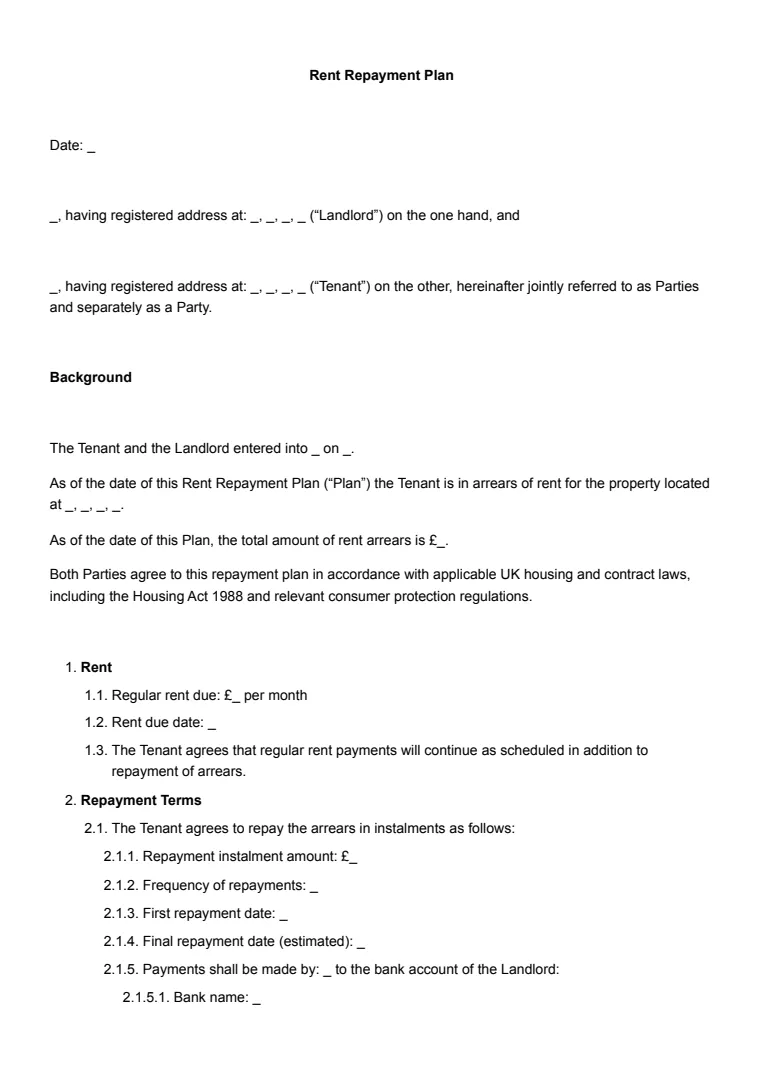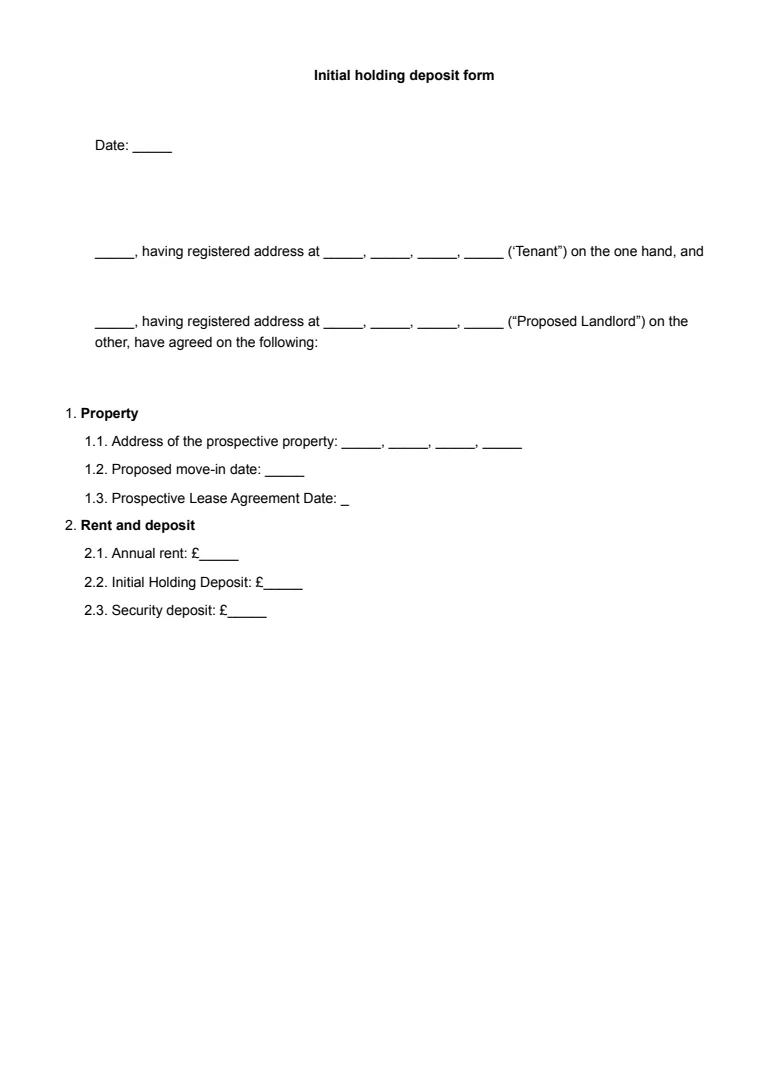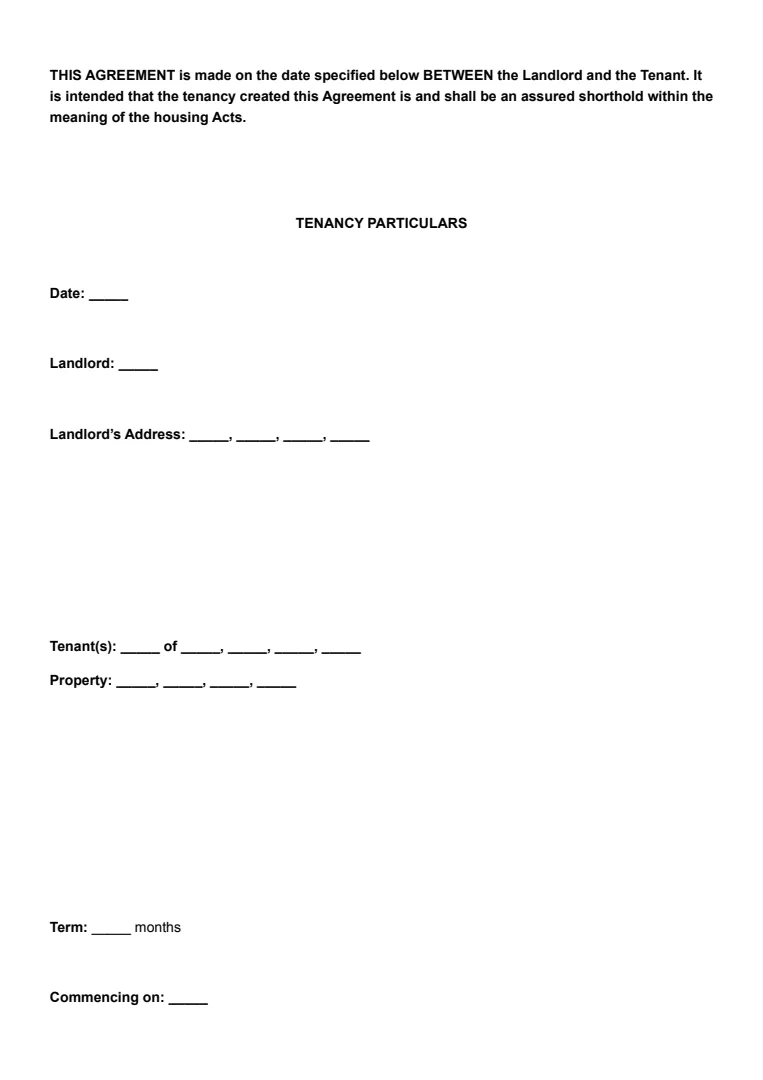What Is a Lodger Agreement?
A lodger agreement is a vital document if you're considering having a lodger stay with you. It establishes the terms under which someone rents a room in your home, ensuring both you, the property owner, and the lodger know what to expect.
This legal contract lays out essential details, such as the amount of rent, how it's paid, and the notice period required to end the agreement.
It includes house rules about shared spaces to prevent misunderstandings.
Key Elements of a Lodger Agreement
- Rent: How much and how frequently rent must be paid.
- Duration: Whether it's a fixed-term or rolling contract.
- Living Arrangements: Access to communal areas like the kitchen or bathroom.
- Rules: Any specific house rules, such as noise restrictions or guest policies.
While you can agree verbally, a written agreement is recommended for clarity and legal security. Both you and the lodger should sign it to formalise the agreement.
A lodger usually has fewer rights than a tenant. As a property owner, you can have more flexible terms, like the ability to change rent or end the agreement quickly compared to standard tenancies.
It's crucial to tailor the arrangement to suit both parties.
When Is a Lodger Agreement Needed?
If you’re renting out a room in your house, you’ll need a lodger agreement. This is essential when you want to formalise the arrangement between you and another person living in your home.
When letting a room, a lodger agreement is typically required if you're renting out a room to someone who shares living spaces with you or your family.
If you're a tenant looking to take in a lodger, check your tenancy agreement. Some require landlord permission before doing so.
In England and Scotland, a lodger agreement helps set clear rights and responsibilities. It’s distinct from other tenancy types since it applies to someone living in your home, not renting the entire property.
If the lodger is from overseas, check their immigration status. You might need to confirm they have the right to rent in the UK, which a lodger agreement can help validate.
While a lodger agreement isn't legally mandatory, it's advisable. It ensures all parties understand their obligations and can be particularly useful for setting terms on rent, utilities, and house rules.
How to Write a Lodger Agreement
Creating a lodger agreement gives you and your lodger peace of mind by clearly laying out expectations. Here’s a simple guide to drafting one.
Step 1: Understand the Purpose
First, recognise that a written agreement helps avoid misunderstandings. It formally records the terms of renting a room in your home, laying a foundation for a good landlord-lodger relationship.
Step 2: Gather the Required Information
Start by collecting the necessary details. This includes the full names of both parties, the address of the property, and a description of the room being rented.
Be specific about which parts of the property the lodger can access.
Step 3: Set the Terms
Decide on the terms and conditions of the agreement. These should include the rental amount, payment frequency, and any additional charges.
Clearly outline the duration of the agreement and the notice period required for termination by either party.
Step 4: Outline Responsibilities and Conduct
Define responsibilities for maintenance and repairs. Clarify duties such as cleaning and any rules about guests.
Mention behavioural expectations such as noise levels and smoking policies to maintain a harmonious living environment.
Step 5: Legal Considerations
Include legal clauses like termination terms and conditions. It's crucial to state the obligations under the Tenant Fees Act, ensuring you comply with local laws.
Step 6: Finalise and Sign
Review the document to ensure all points are clear and accurate. Once satisfied, both you and your lodger should sign the agreement.
Keep a copy for yourself and provide one to your lodger for their records.














